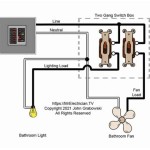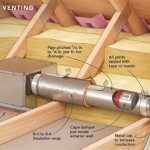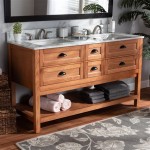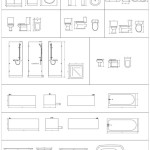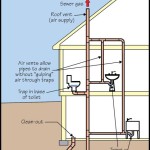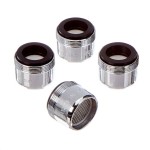Essential Aspects of Plumbing Connections Under Bathroom Sink
Plumbing connections under a bathroom sink are critical components that ensure the smooth flow and drainage of water. Proper installation and maintenance of these connections are essential to prevent leaks, blockages, and other plumbing issues. This content piece focuses on the essential aspects of plumbing connections under a bathroom sink, including the types of connections, materials used, and common installation techniques.
Types of Plumbing Connections
There are two main types of plumbing connections under a bathroom sink: threaded connections and compression fittings. Threaded connections involve screwing pipes or fittings together to create a seal, while compression fittings use a compression sleeve or washer to establish a connection. The choice of connection depends on the specific plumbing system and the fixtures being installed.
Materials Used
The materials used for plumbing connections under a bathroom sink determine their durability and performance. Common materials include PVC (polyvinyl chloride), copper, and galvanized steel. PVC is lightweight and corrosion-resistant, making it a popular choice for both hot and cold water connections. Copper is durable and heat-resistant, but it is also more expensive than PVC. Galvanized steel is strong and resistant to corrosion, but it may corrode if not properly protected.
Installation Techniques
Proper installation is crucial for ensuring leak-free and efficient plumbing connections. Threaded connections require the use of pipe dope or thread sealant to create a watertight seal. The pipes or fittings should be tightened securely, but not overtightened, as this can damage the threads. Compression fittings also require tightening, but the compression sleeve or washer should be compressed enough to create a seal without overtightening.
Common Problems with Plumbing Connections
Some common problems with plumbing connections under a bathroom sink include leaks, blockages, and loose connections. Leaks can be caused by worn-out seals, loose fittings, or damaged pipes. Blockages can occur due to hair, soap scum, or other debris buildup. Loose connections can lead to leaks and reduced water flow.
Conclusion
The plumbing connections under a bathroom sink are essential aspects that ensure the proper function of the sink and other plumbing fixtures. Understanding the types of connections, materials used, and installation techniques is crucial for preventing common problems and maintaining a leak-free and efficient plumbing system. By following these guidelines, homeowners and contractors alike can ensure the longevity and reliability of their bathroom plumbing connections.
How To Install Bathroom Sink Drain Queen Bee Of Honey Dos

4 Ways To Seal A Sink Drain Pipe

How To Install A Pipe From Sink Drain Wall Ehow

How To Plumb A Bathroom With Multiple Plumbing Diagrams Hammerpedia

Bathroom Sink Plumbing Installation Diy Montreal

Bathroom Sink Drain Leaking Around Threads Premier Plumbing Inc

What Is The Bathroom Sink Plumbing Rough In Heights

Common Sink Leaks You Could Probably Fix Yourself

How To Plumb A Drain Sink Pipes

Simple Drain 1 25 In Rubber Threaded P Trap Bathroom Single Sink Kit 3ea 1v2 Tc0 The Home Depot
Related Posts
